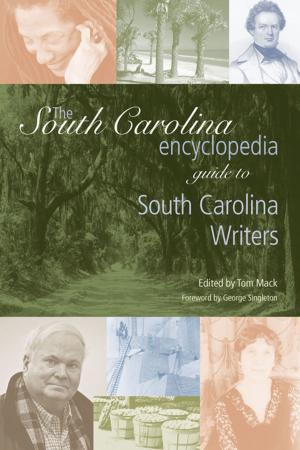Understanding Don DeLillo
Fiction & Literature, Literary Theory & Criticism, American, Biography & Memoir, Literary| Author: | Henry Veggian, Linda Wagner-Martin | ISBN: | 9781611174458 |
| Publisher: | University of South Carolina Press | Publication: | November 10, 2014 |
| Imprint: | University of South Carolina Press | Language: | English |
| Author: | Henry Veggian, Linda Wagner-Martin |
| ISBN: | 9781611174458 |
| Publisher: | University of South Carolina Press |
| Publication: | November 10, 2014 |
| Imprint: | University of South Carolina Press |
| Language: | English |
Henry Veggian introduces readers to one of the most influential American writers of the last half- century. Winner of the National Book Award, American Book Award, and the first Library of Congress Prize for American Fiction, Don Delillo is the author of short stories, screenplays, and fifteen novels including his breakthrough work White Noise (1985) and Pulitzer Prize finalists Mao II (1992) and Underworld (1998). Veggian traces the evolution of DeLillo’s work through the three phases of the author’s career as a fiction writer, from the experimental early novels, through the more substantial works of the mid-1980s and 1990s, into the “smaller” but newly innovative novels of the last decade. He guides readers to Delillo’s principal concerns—the tension between biography and anonymity, the blurred boundary between fiction and historical narrative, and the importance of literary authorship in opposition to various structures of power—and traces the evolution of his changing narrative techniques. Beginning with a brief biography, an introduction to reading strategies, and a survey of the major concepts and questions that inform writings about DeLillo’s work, Veggian proceeds chronologically through the major novels of the author’s career. His discussion summarizes complicated plots, reflects critical responses to the author’s work, and explains the literary tools used to fashion his characters, narrators, and events. In a concluding chapter, Veggian engages DeLillo’s notable examples of other modes, particularly the short story that, he shows, reveals important insights into his “modular” working method as well as the evolution of his novels.
Henry Veggian introduces readers to one of the most influential American writers of the last half- century. Winner of the National Book Award, American Book Award, and the first Library of Congress Prize for American Fiction, Don Delillo is the author of short stories, screenplays, and fifteen novels including his breakthrough work White Noise (1985) and Pulitzer Prize finalists Mao II (1992) and Underworld (1998). Veggian traces the evolution of DeLillo’s work through the three phases of the author’s career as a fiction writer, from the experimental early novels, through the more substantial works of the mid-1980s and 1990s, into the “smaller” but newly innovative novels of the last decade. He guides readers to Delillo’s principal concerns—the tension between biography and anonymity, the blurred boundary between fiction and historical narrative, and the importance of literary authorship in opposition to various structures of power—and traces the evolution of his changing narrative techniques. Beginning with a brief biography, an introduction to reading strategies, and a survey of the major concepts and questions that inform writings about DeLillo’s work, Veggian proceeds chronologically through the major novels of the author’s career. His discussion summarizes complicated plots, reflects critical responses to the author’s work, and explains the literary tools used to fashion his characters, narrators, and events. In a concluding chapter, Veggian engages DeLillo’s notable examples of other modes, particularly the short story that, he shows, reveals important insights into his “modular” working method as well as the evolution of his novels.















